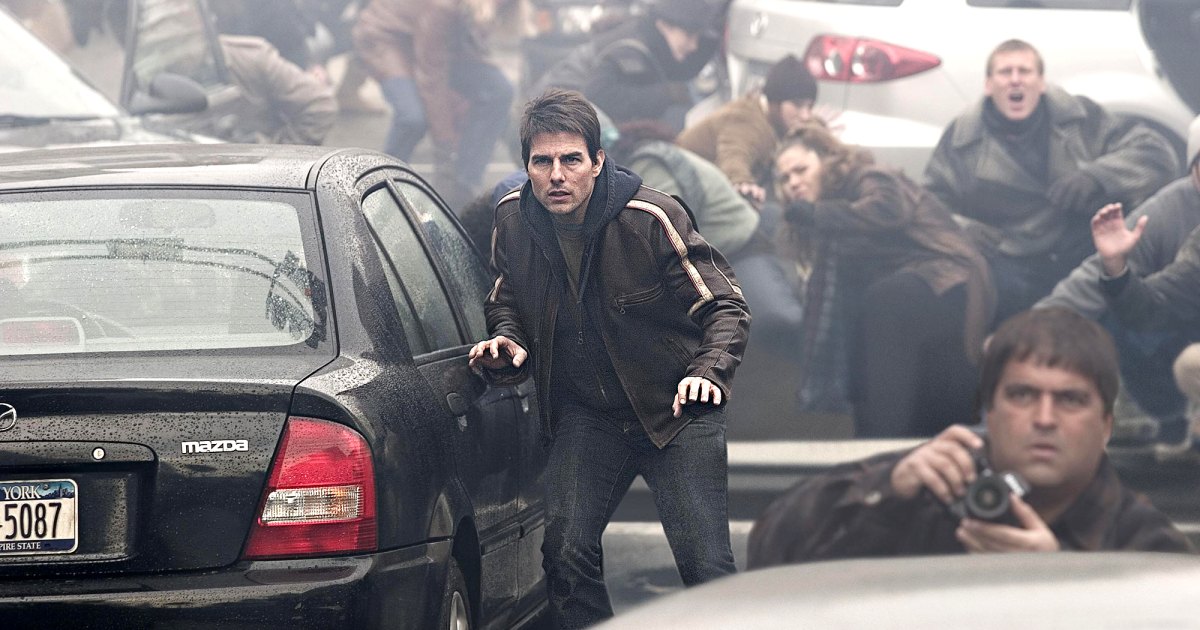Tom Cruise in ‘War Of The Worlds.’ Cover Images
While filming movie and TV scenes in bustling crowds, most of the individuals in the background aren’t random at all and have been hired as extras.
“There are two groups with different sets of directions when it comes to extras,” Fate director Jonathan Baker says in the latest issue of Us Weekly, referring to the background performers in a scene. “The first group of extras are those closest to the camera.”
The first class of extras are given instructions by the director so they know where to sit, stand and how to act for the situation. (The director will also speak directly to a film’s stars with top billing.) A film’s first AD (assistant director) will provide further and more specific directions to the group. According to Baker, the explanations help performers “understand more details about what they are needed to do in the scene.” It also helps to “secure” their positions in the crowd.
While this first group of extras is usually paid to appear in the scenes, another categorization of background players does not receive financial compensation for appearing in the project. This designation of actors is told what to do by the second AD on the project.
“[These extras] play a crucial role in creating a realistic and immersive environment,” Baker says. “Positioned behind barriers or out of primary focus, these extras add depth and authenticity to the setting, enhancing the overall believability of the film.”
This type of actor is unlikely to be seen up close but helps create a larger effect that the film’s event takes place in a crowded setting. For example, in Tom Cruise’s 2005 movie War of the Worlds (pictured above), the 62-year-actor is seen fleeing an alien invasion as it devastates the city. Extras are brought in to make the setting look full like a real bustling city.
And since members of the production team are explicitly instructing extras on how to act when the cameras start rolling, it is unlikely that someone will go rogue and either stare down the lens or wave enthusiastically out of context.
But, what if someone passing by randomly strolls onto the set while drinking their morning cup of coffee or taking their pet dog out for a walk? According to Baker, that is also not very likely to occur.
“There is almost always a large sign indicating that filming is in progress in the area,” Baker notes, making it hard to miss a camera crew in the middle of shooting.
If you have a burning entertainment question for our team of experts, email us at [email protected]. For more, pick up the new issue of Us Weekly, on newsstands now.
With reporting by Leanne Aciz Stanton



![Alan Cumming Recalls Spoiling [Redacted]’s ‘Good Wife’ Death](https://www.usmagazine.com/wp-content/uploads/2023/02/Alan-Cumming-Recalls-Spoiling-Redacteds-Good-Wife-Death-0001.jpg?crop=0px%2C37px%2C1200px%2C678px&resize=400%2C225&quality=86&strip=all)


